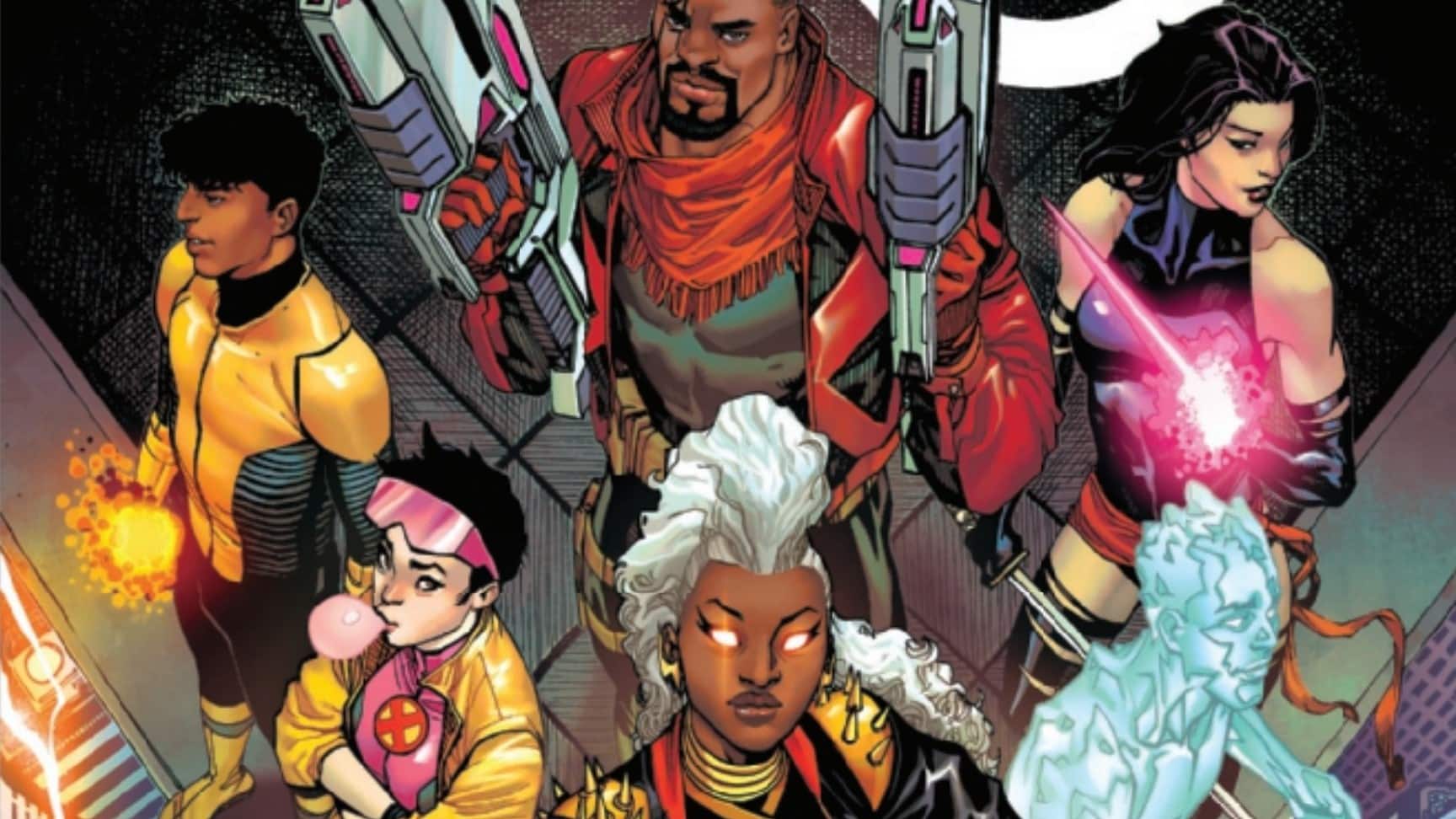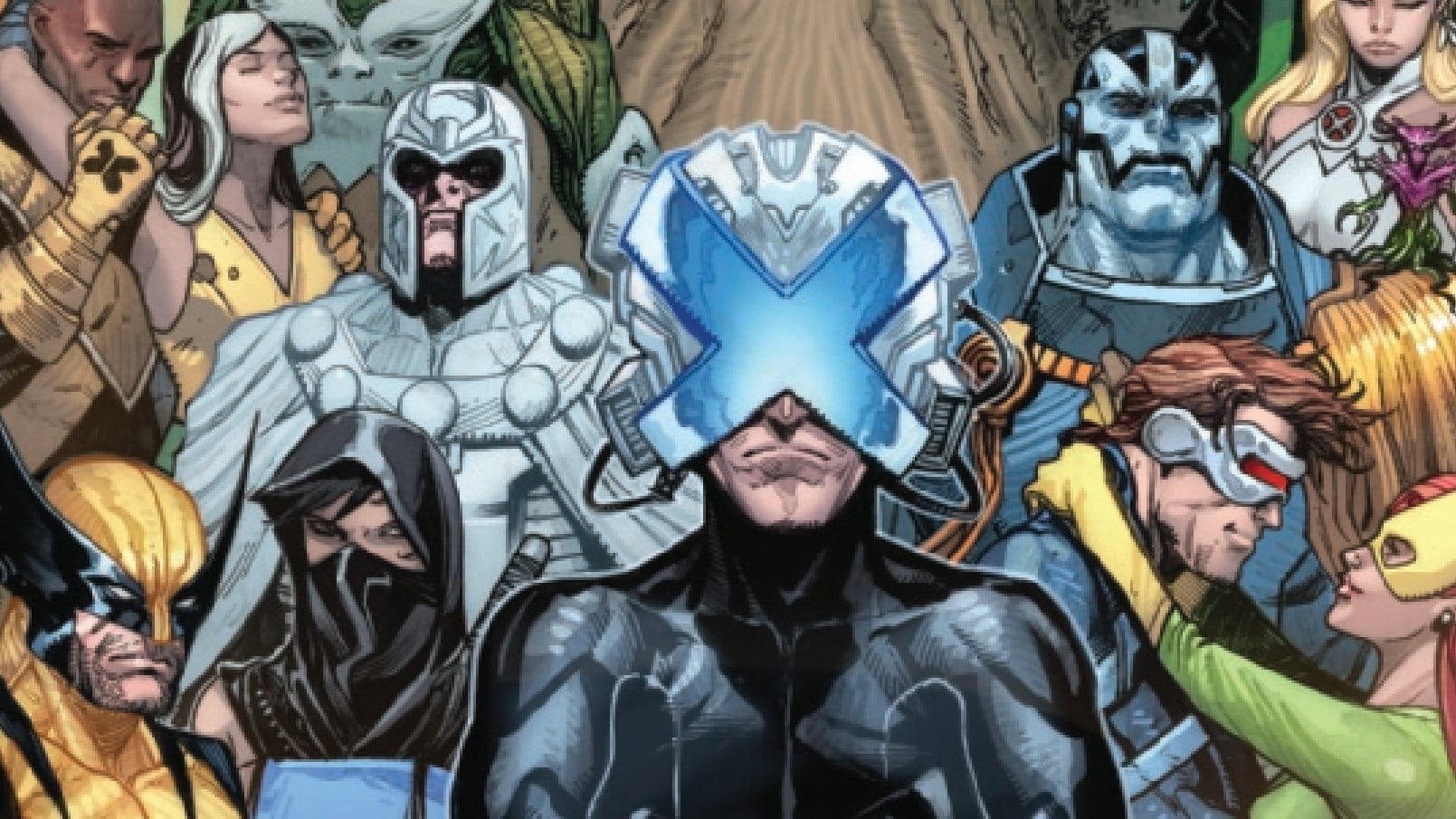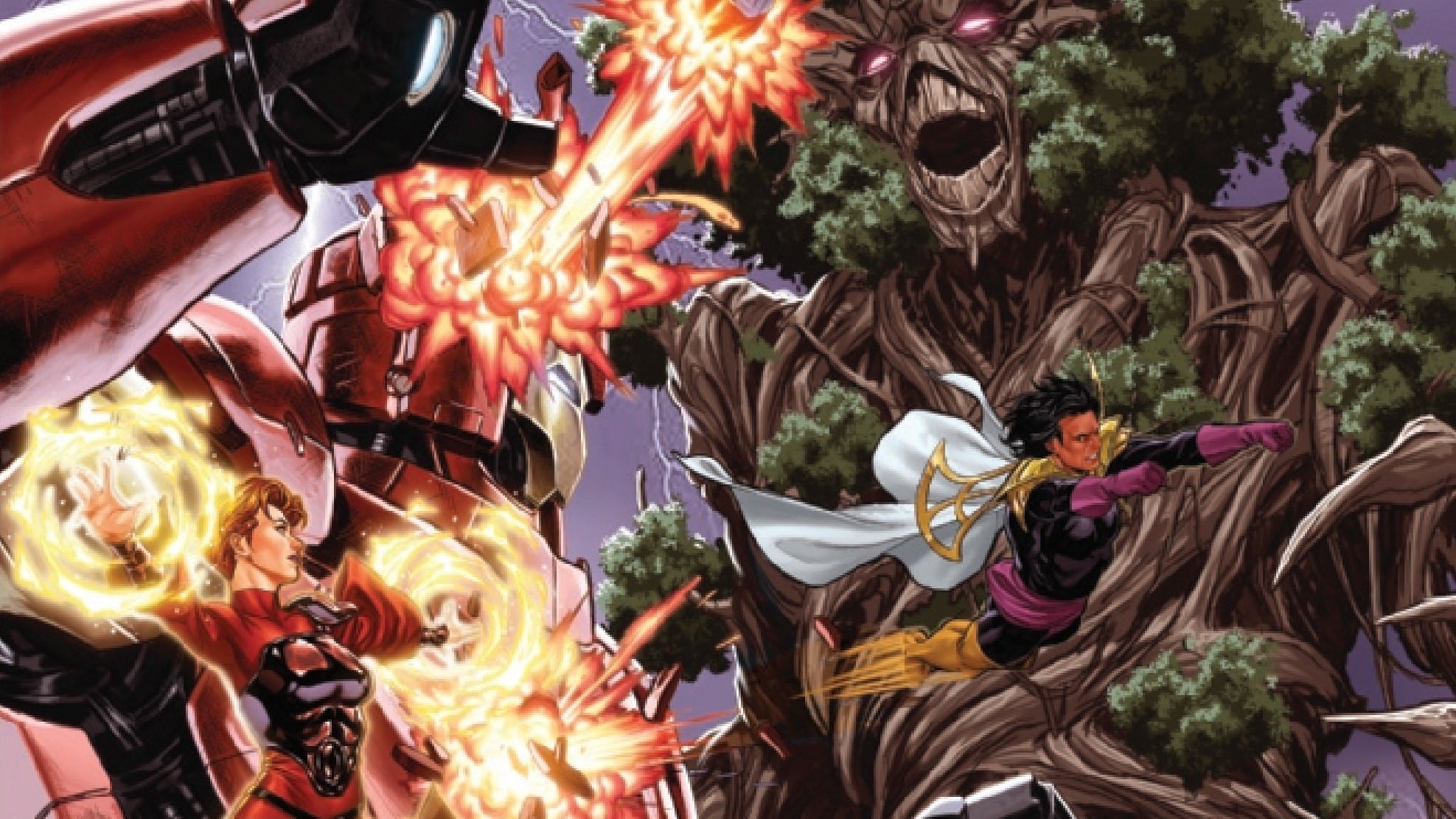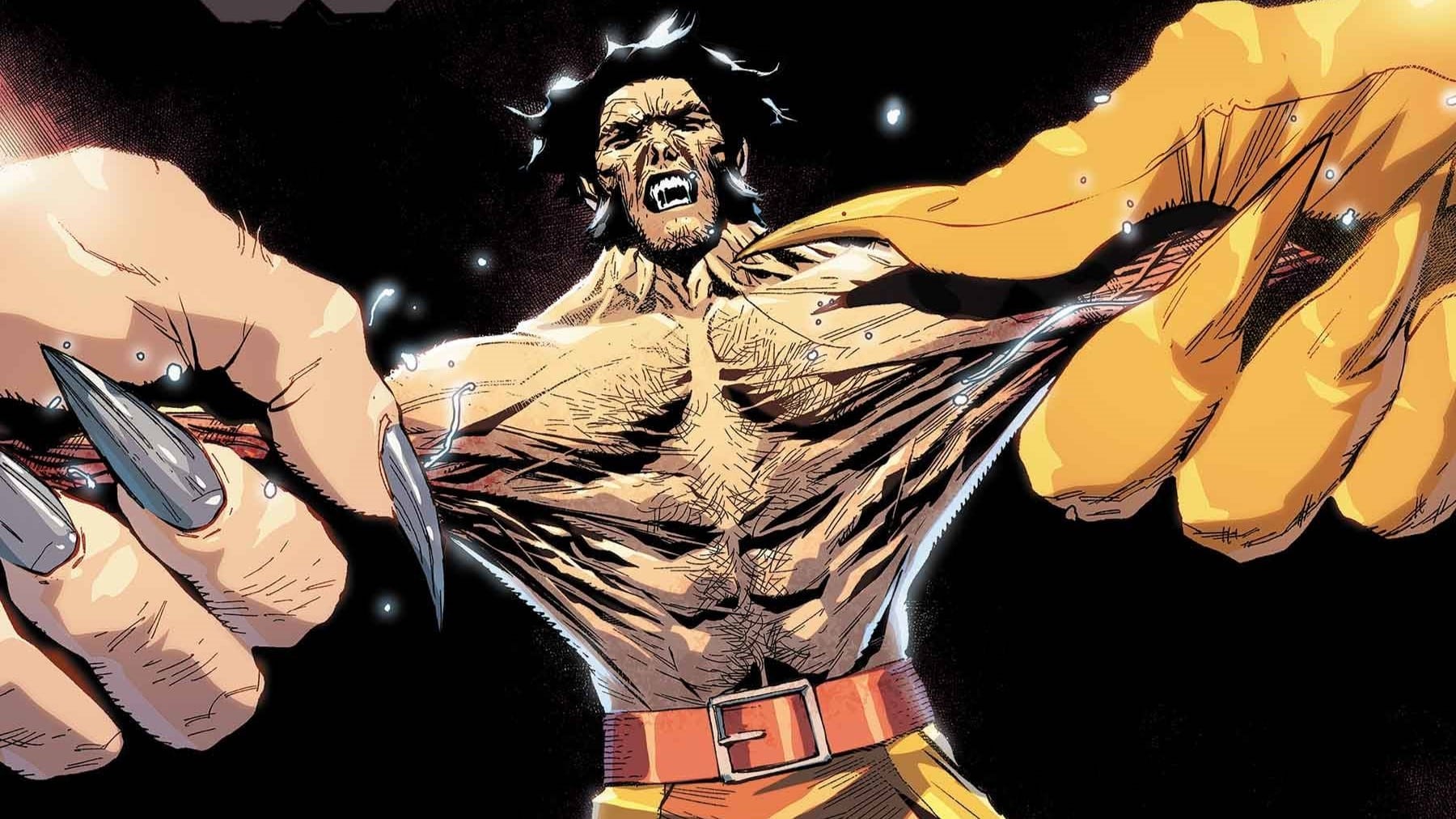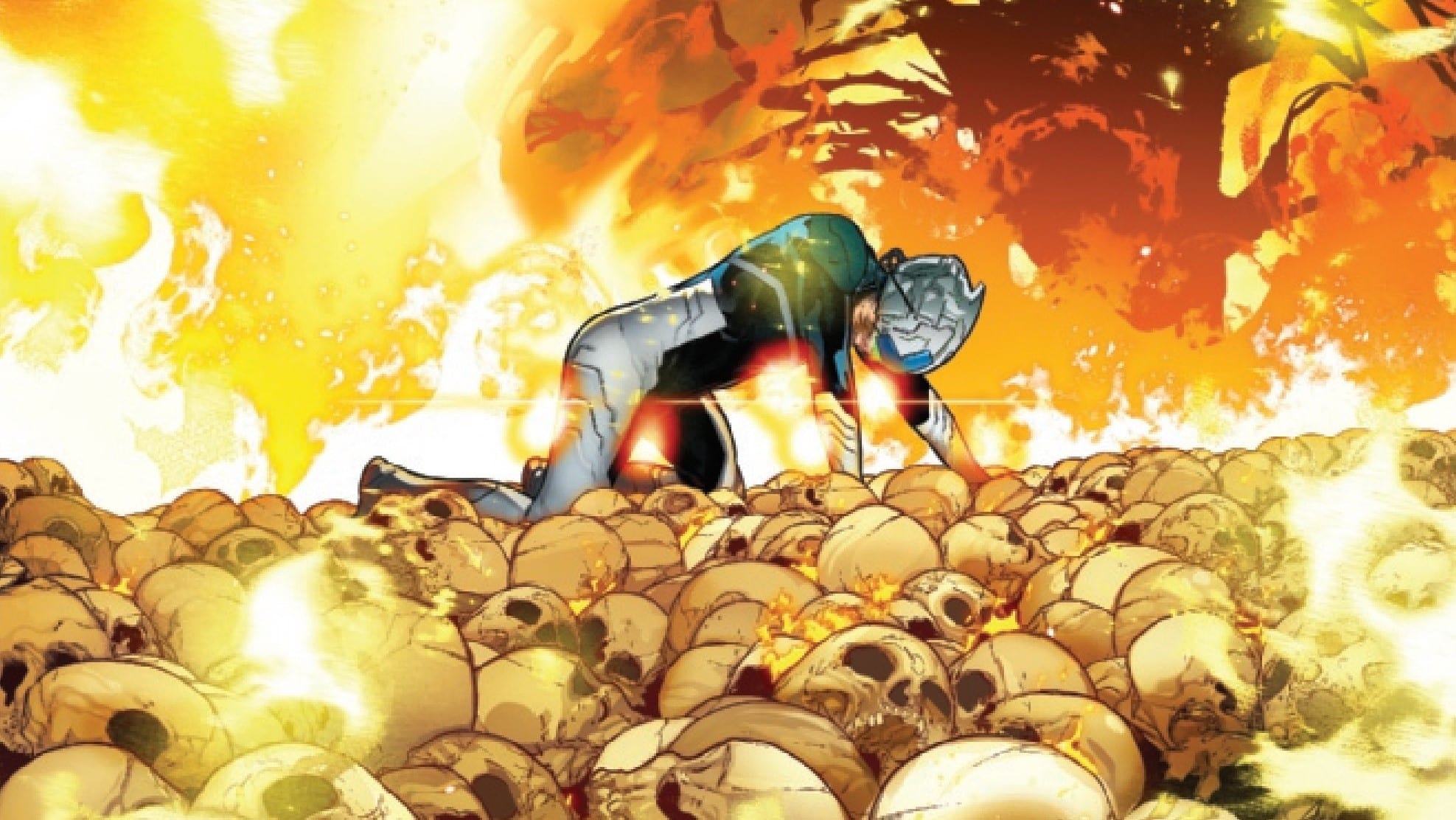Ever wonder if Marvel Comics would acknowledge the fundamental, consistent, flaming queerness of so many X-comics and X-Men, or whether the company would rather talk, in broad terms, about the mutant metaphor? Find out, or not, in the anthology comic Marvel’s Voices: X-Men, with writing by Vita Ayala, Raphael Draccon, Carolina Munhoz, Sarah Kuhn, Al Ewing, Jay Jurdin, Greg Pak and Jay Edidin, and art by Jan Bazaldua, Marcelo Costa, Neera Menon, Nina Vakeuva, KJ Diaz, Daniel Bayliss, Costa, Wilton Santos, Oren Junior, Andrew Dalhouse, Gustavo Vargas, Manuel Puppo, Jorge Corona, Jim Campbell, Jethro Morales and Michael Wiggam. Whew!
Is this anthology comic a celebration of queer X-content? Or is it a kind of elegy, since it comes out right after the fall of Krakoa, where so many mutants could (in theory) pursue the lives they’d always wanted, on and off the page? Is it a celebration of mutants of color, or creators of color, or something? Or a retreat into the mutant metaphor? Or a way to split the difference?
For queer content, in particular, the questions seem depressingly relevant now. The era of HoXPoX saw Karma find a long-term girlfriend, Kate Pryde kiss a woman on panel, Bobby Drake continue his liaisons with hot guys, Charlie Jane Anders create a short-lived and nearly all-trans mini-team, and Betsy/Rachel shippers get exactly what they wanted. How much of that on-page queer content — more than ever before — is gone with the mutant nation-state, and how much of it will carry on into the supposedly all-new, perhaps not-so-different age of new line editor, and decades-long Marvel fixture, Tom Brevoort?
This one-shot answers none of those questions. Instead it’s a very mixed bag of stories that emphasize the queerness of Iceman, and Iceman again, and Mystique and Destiny; and Jean and Emma, gal pals being gal pals, just pallin’ around; and the friendship between Jubilee and Laura Kinney, in a fine, fun, low-stakes story where everyone’s Asian American; and everyone’s favorite Southern, white, straight or straight-passing X-romance, Rogue and Gambit. There’s also an essay on intersectionality, readers of color and the mutant metaphor by the greatest modern writer of personal drama in X-comics, Vita Ayala, which could be their goodbye to the line (though I hope not), a long interview with artist Whilce Portacio, and a “who’s your favorite mutant?” roundtable that could have fit into any X-title, now or in 1989 or ‘99.
Were Twitter — sorry, X? — in more robust shape, I’d expect to see a string of posts from disappointed mutant readers, arguing that these Voices aren’t nearly Queer enough, though (and this seems to be the point of the anthology) many of the creators are; the rest are mostly or entirely people of color, and some are both. Ayala, Ewing, Edidin, Jurden and Bazaldua have all discussed their LBGTQ identities in public; Kuhn and Pak are known for creating gay and bisexual characters, in comics and in prose, as well as for exploring Asian America.

But this isn’t Marvel’s Voices: Creators’ Personal Lives. It’s a collection of X-stories and, um, did I mention a mixed bag? My friends love Al Ewing’s writing half to death. I wish I didn’t have to tell you here that “The Man with No Shame,” his story about queer men in love and in battle on Arakko, may not intend all the comedy it creates. Bobby makes slightly out-of-character speeches: “Pride’s more than a celebration. It’s a protest. And there’s a lot to protest right now.” And he makes them to Kobak Never-Held, an Arakko mutant who looks like a giant porcupine and talks like a gregarious Klingon: “In the great sieges, who a mutant loved was less important than how they could fight, Robert Drake.”
Kobak then introduces us to Solem, who tells us a story about a big, blue Arakkan named Bracken, the kind of guy who’ll show you a good time in bed, then never call you back: That’s what he did to Solem. Solem responded to Bracken’s ghosting by killing him. The Arakkian powers responded by imprisoning Solem for a century. Solem, now free, appears to tell Bobby and Kobak that locking him up for murder is bisexual erasure. “Is it because I desire women as well as men? Those outside binaries as well as those within them?” No, dude, it’s because you used a flask of Blightswill in a bar fight. Look for Solem’s continuation of Glen’s Homophobia Newsletter wherever Arakko comics are sold.
Sarah Kuhn and Jorge Corona, on the other hand, are fully in control of their material, and it’s delightful material: Emma and Jean, who are definitely not on a date, stroll around on Coney Island, fighting an ensorcelled carnival lovey. The Coney Island of Earth-616, I’m delighted to learn, has a spinning, eight-carriage ride called “Doc Ock.” There’s a croissconenutwichdog: It’s “actually quite good.” Emma speculates on the girl she could have been, perhaps would have been, without powers, and Jean, like a girl who is definitely not on any kind of date, decides to win her a giant teddy bear. Alas, the bear is a bust: “That giant teddy bear’s megalomaniacal villain speech is going to be atrocious,” or would have been had our intrepid telepaths not solved the problem, Squirrel Girl style. Corona’s art — think Enid Balám — shows up for the party. I love it.
Almost as much as I love Jurden, Santos, Junior and Dalhouse’s nearly plot-free offering, in which Bobby and Ororo spar for fun on Arakko. Bobby quips. Ororo notices that Bobby always quips and tells him that she always took him seriously, without exactly telling him (or telling us) whether and when she knew he was gay. And the art team rocks out in depicting their powers. Ice spikes, duplicates, sandstorms, overlapping panels, varied poses, lightning strikes. This is why people want to be comic book artists. And it’s fun to watch.
There’s one more reason to read this otherwise fairly lightweight anthology, and it’s a very good reason. I can’t be objective about Jay Edidin’s writing: He co-hosts the podcast that helped me come out of my own closet, and he’s been on my podcast. With that statement out of the way, his Destiny and Mystique story is clear, forceful and memorable. Except that it’s not quite a story: It’s a conversation, set just before the events of “Days of Future Past,” that answers a question. Why is Mystique a villain? Why is Destiny, who ought to know villains usually lose, a villain? Given how much they know about the relative competence of the X-Men against their Magneto-less Brotherhood, why don’t they just, out of sheer self-interest, do face turns?

“Do you ever think about changing sides? Jumping ship for Xavier’s?” a delightfully butch Raven Darkholme, lounging in jeans and seeing her blue face in a big oval mirror, asks her seated girlfriend.
“No,” says Irene Adler. “It’s a matter of principle. Imagine me, a hero.”
Heroes stand, in the imagination of Charles Xavier (as imagined in turn by Irene), for the principle that mutants are “just like everybody else. … Do you really think there’s room in the world of just like everybody else for a woman who goes home at night to her wife?” The X-Men and their principle of coexistence just don’t get intersectional enough to include Mystique and Destiny in their version of tolerance. They’re not willing to fight — their heroic mission makes them unable to fight — for the true acceptance that Raven and Irene need. Raven and Irene find it, instead, in each other, and it’s those two and their more or less hapless henchpeople, Pyro and Avalanche and Blob, against the rest of the straight world.
That conversation would hit hard enough were it nothing but prose. But comics are (say it with me) a visual medium, and Edidin knows how to write for artists. Vakeuva and Díaz know just how to read the characters, and they get the big panels and full-page spreads that let them make poster-worthy icons out of these once-caricature-worthy antiheroes. Mystique, her face half in shadow, explains to Destiny that she doesn’t want to pass, even though her superpowers allow it. Destiny touches her face, gently, lightly, adoringly. Edidin makes it canonical that Destiny involved herself in ACT-UP (a neat trick given that “Days of Future Past” came out, in our world, before ACT-UP formed, but that’s sliding time at its best). And then, again, they kiss.
“Maybe the Brotherhood is the only place where I can be myself,” Mystique muses, and Destiny follows her where the whole mutant metaphor deserves to go: Being yourself is worth fighting for. “Maybe it’s the only thing worth fighting for.” As with the famous Katyana double-page from All-New X-Men #25, the full page of the kiss from this new story belongs on a hundred, no, five hundred, no, thousands of bedroom walls, and it’s worth any number of hemming, hawing, subtext-only stories from other writers. These are the Marvel Voices I’ve waited to hear.
Disclaimer: As an Amazon Associate, ComicsXF may earn from qualifying purchases.
Stephanie Burt is Professor of English at Harvard. Her podcast about superhero role playing games is Team-Up Moves, with Fiona Hopkins; her latest book of poems is We Are Mermaids. Her nose still hurts from that thing with the gate.

